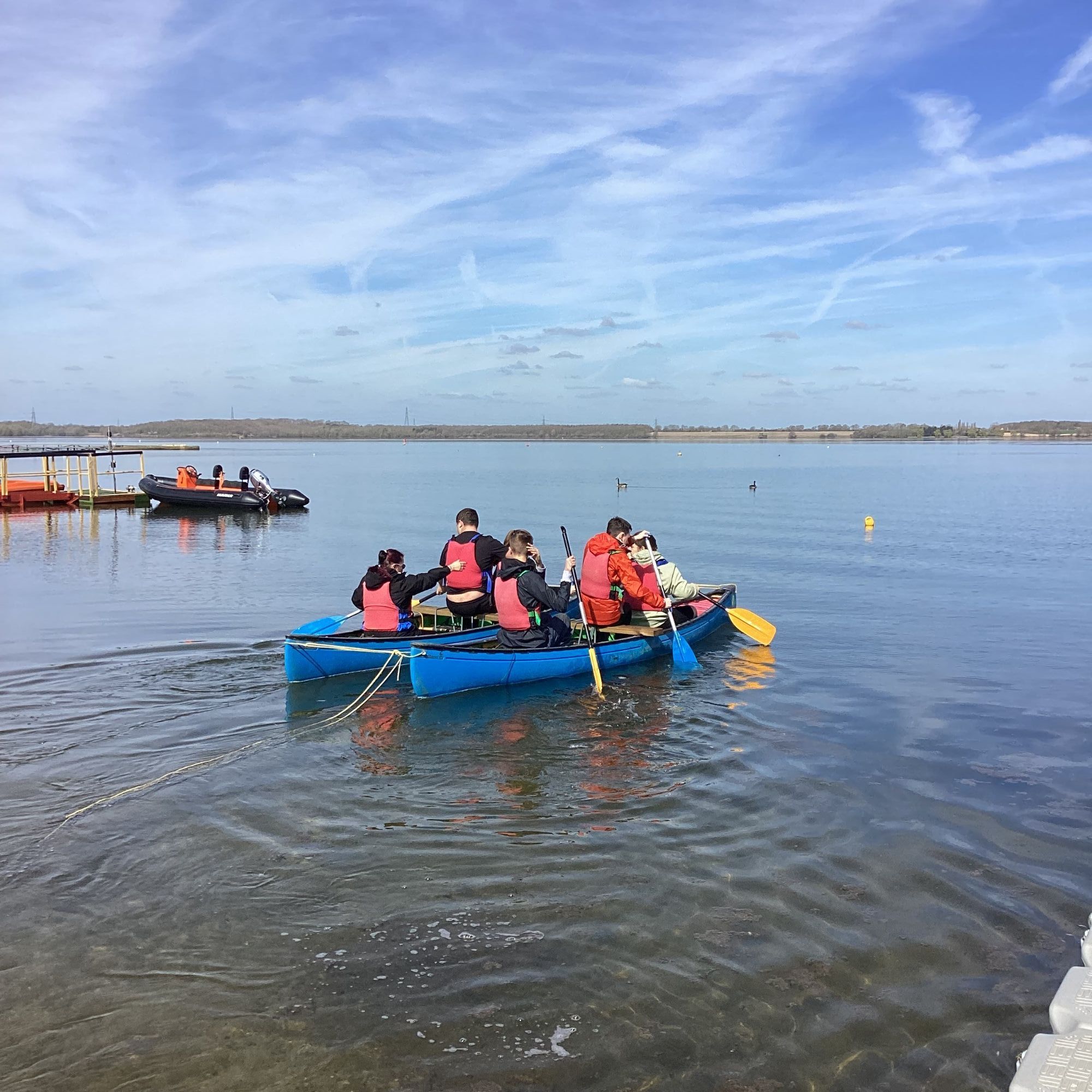- Curriculum
- HEALTHY LIVING (PE, PSHE, Food Technology, Learning Outside the Classroom)
- Learning Outside the Classroom (LOtC)
Learning Outside the Classroom (LOtC)

Intent
At Purple Oaks Academy, we believe that Learning Outside the Classroom is an essential aspect of our curriculum that greatly enhances each student’s learning experience. Our intent is to utilise outdoor learning environments to promote holistic development and support the diverse needs of our students from Early Years Foundation Stage (EYFS) through to Post-16. LOTC empowers our students by fostering independence, enhancing communication skills, and promoting emotional regulation, aligning perfectly with our school's core drivers.
Our objectives are to:
- Enhance Engagement and Motivation: We aim to inspire students by allowing them to explore the natural world, which is integral for igniting curiosity and passion for learning.
- Promote Social Skills and Independence: LOtC provides interactive opportunities for teamwork and cooperation that build critical social skills in a controlled environment.
- Support Communication and Language Development: The outdoor setting encourages natural conversation and interaction, aiding in the development of communication skills essential for all learners.
- Foster Physical Development: Outdoor experiences are fundamental for improving physical coordination, strength, and overall well-being, particularly for students with additional needs.
- Catering to Individual Learning Styles: Our outdoor activities are designed to be flexible and adaptive, allowing for differentiation and personalisation according to each student’s unique needs.
Implementation
Our strategy for implementing Learning Outside the Classroom involves structured planning, collaboration, and integration across all key stages of education.
- Curriculum Integration: We embed LOtC within our curriculum by aligning outdoor activities with the National Curriculum objectives. Each term, teachers develop specific learning outcomes for outdoor activities that complement classroom learning.
- Professional Development: Staff receive continuous training on outdoor activities and pedagogical strategies that engage students with SEN. This includes workshops on risk assessment and behaviour management in outdoor settings.
- Collaborative Approaches: We actively involve parents and the local community in planning and supporting LOtC initiatives. This partnership enhances the resources available and offers varied perspectives on using outdoor spaces effectively.
- Accessible Learning Environments: Our outdoor spaces are designed to be inclusive, with sensory gardens, quiet areas, and varied terrains to cater to the different physical and sensory needs of our students. We invest in adaptive equipment where necessary.
- Regular Risk Assessments: Safety is paramount when implementing LOtC. We conduct thorough risk assessments for all outdoor activities to mitigate potential hazards while encouraging students to challenge themselves appropriately.
- Monitoring and Feedback: We utilise formative assessment strategies during LOtC activities to monitor student progress and engagement. Staff regularly reflect on activities as a team, allowing for continuous improvement.
Impact
The impact of our Learning Outside the Classroom is measured through several qualitative and quantitative outcomes that align with our intent.
- Increased Engagement: Observations and feedback indicate a marked improvement in student engagement during outdoor activities compared to traditional classroom settings, as evidenced by higher rates of participation and enthusiasm.
- Social Skills Development: Data from social skills assessments shows significant growth in the ability of students to work collaboratively, share materials, and engage in peer discussions, contributing to improved relationships amongst peers.
- Communication Improvement: Speech and language benchmarks indicate that students participating in LOtC activities display enhanced vocabulary use and a greater willingness to communicate, with many demonstrating progress in expressive and receptive language skills.
- Physical Development Metrics: Regular evaluations of physical engagement reveal improvements in gross and fine motor skills, as well as increased confidence in students’ physical abilities, contributing to better overall health.
- Positive Parental Feedback: Surveys conducted with parents post-participation in LOtC activities indicate overwhelming support. Parents report improved mood and willingness to engage in conversations about their children’s experiences and learning progression.
- Long-Term Engagement: Tracking former students who participated in LOtC shows they have maintained their interest in outdoor activities, contributing to lifelong learning and personal development beyond school settings.
Learning Outside the Classroom is not merely an addition to our curriculum; it is a fundamental part of our educational ethos. Through our intentional, well-implemented approach, we ensure that all students have the opportunity to thrive in an inclusive, engaging, and enriching learning environment that prepares them for future challenges and successes.

